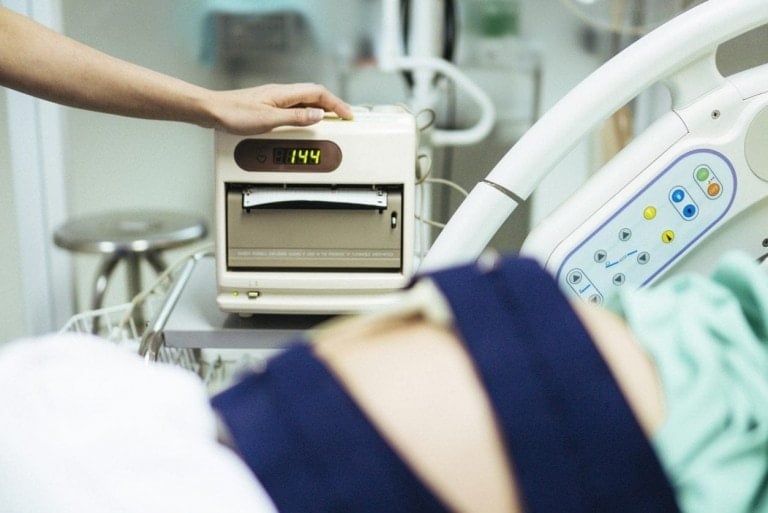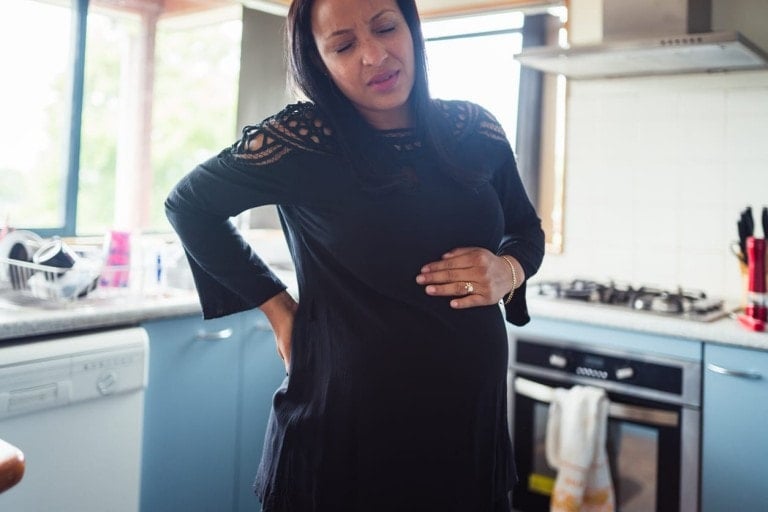Pregnancy is an exciting and overwhelming time in a woman’s life. Learning that you have or may have gestational diabetes can throw a wrench in an otherwise joyful experience. While developing gestational diabetes is certainly not ideal, it is not as scary as it seems. With timely testing and diligent health choices, gestational diabetes can be easily diagnosed and managed. Here are a few answers to common questions many women have about gestational diabetes:
What is gestational diabetes?
Gestational diabetes (or GDM) occurs when a woman who doesn’t have diabetes before pregnancy develops elevated blood glucose levels (sugar) during pregnancy.1 2% to 10% of pregnancies in the United States each year are affected by gestational diabetes.2
One of the most prevalent theories for the cause of GDM is that hormones from the placenta block the action of the mother’s insulin in her body. This is called insulin resistance, making it hard for the mother’s body to use insulin properly.3 Without enough insulin, glucose cannot leave the bloodstream and be utilized for energy. Blood glucose can then build up to dangerous levels, called hyperglycemia.4
You will typically be tested for gestational diabetes between your 24th and 28th week of pregnancy. There are two types of glucose tolerance tests: the 1-hour- and 2-hour. With the 1-hour test, you drink a sugary drink and have your blood drawn an hour later. No fasting is necessary for the 1-hour test. Alternatively, there’s a one-step 2-hour test, where you fast, have your blood drawn, then drink the sugary drink and have your blood drawn again one hour and two hours later.
If you test positive for either of these first tests, you will undergo a 3-hour test. With this test, you will have your blood drawn after you have fasted, then drink a sugary drink and have your blood drawn at 1, 2, and 3 hours after the drink.
How is gestational diabetes treated?
Healthy eating habits and adequate exercise can usually regulate GDM during pregnancy. Your medical provider may require you to check your blood glucose levels several times throughout the day. This is to make sure levels are staying within a normal range. However, there are some cases when GDM must be controlled with insulin shots.
Most women’s blood sugar levels return to normal shortly after the pregnancy.5 However, about one-third of women will have diabetes or a milder form of elevated blood sugar after giving birth. Between 15-70% of women will develop diabetes later in life.6 They will have to manage their blood sugar levels through diet, exercise, and sometimes medication.
I was diagnosed with gestational diabetes in my first pregnancy. My midwife and I managed my blood sugar levels through a strict diet (I kept a daily food log). We checked my blood levels several times a day (also recorded in my log) and exercised. Luckily, I never needed to take insulin shots to regulate my blood sugar levels, but if necessary, I would’ve done it in a heartbeat.
Will it affect my future health or the health of my baby?
If left untreated, gestational diabetes can cause the following problems for your baby:8,13
- being born too early
- low blood glucose right after birth (hypoglycemia)
- breathing problems after birth
- nerve damage
- an extra large baby (macrosomia)7
- more likely to develop Type 2 diabetes later in life
- more likely to become obese later in life
For mothers, untreated GDM can cause the following issues:8,13
- high blood pressure (preeclampsia)
- higher chance of c-section
- stillbirth or miscarriage
- increased chance of developing Type 2 diabetes later in life
Who is at risk for developing gestational diabetes?
Anyone can develop gestational diabetes, but you run a higher risk if you:
- are overweight
- have had gestational diabetes before
- family history of diabetes
- have prediabetes9
- have a hormonal disorder called polycystic ovary syndrome, or PCOS10
- are of African-American, American Indian, Asian American, Hispanic/Latin, or Pacific Island American descent
Interestingly, I have only one of these risk factors: my mother had gestational diabetes when pregnant with me. I developed GDM when I was pregnant with my first child but did not develop it with my second pregnancy. From what we could determine, I didn’t do anything differently with diet and exercise. My habits were already pretty good for my second pregnancy. We aren’t sure why I got gestational diabetes for one pregnancy and not the other.
Can I do anything to avoid gestational diabetes?
Since doctors don’t really know what causes gestational diabetes, this question is harder to answer.11 However, there are ways to try and prevent gestational diabetes with a diet. If you are trying to get pregnant and are overweight, do everything you can to get to a healthier weight before you conceive. Begin making healthy eating choices and start exercising for at least 30 minutes every day. The Weston A. Price diet is a fantastic guideline for general healthy eating, especially during pregnancy, even more so if you have gestational diabetes.12
Even if you are healthy and make all the right eating and exercise decisions, you may still develop GDM. I was one of those women, and I can tell you it was such a blow to my ego. Please do not get discouraged and afraid. It does not mean you have done anything wrong, and gestational diabetes can be managed. Whatever you do, if you are diagnosed with gestational diabetes, do not let it steal the joy of your pregnancy. Remember, you only get to experience being pregnant for a short period—don’t let an easily manageable diagnosis distract you from the journey!
































